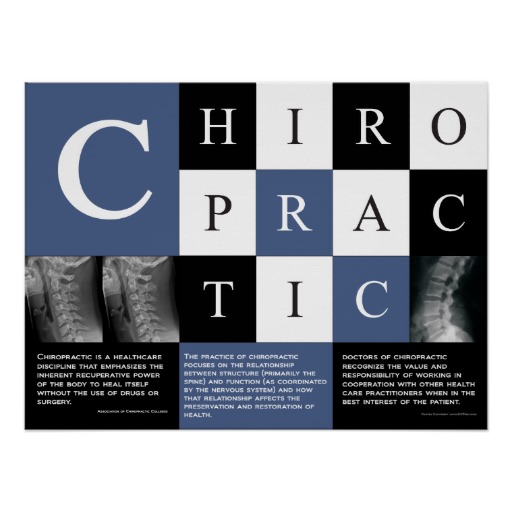Week of: Monday Sept. 2, 2019
Courtesy of:
John H. Keefe III, D.C.
(918) 663-1111

IN THE NEWS: Acetaminophen/ Tylenol warning: A leading cause of acute liver failure by: Dena Schmidt, staff writer | August 25, 2019 In an ideal world, the United States Food and Drug Administration (FDA) would always function in the best interests of the consumer. However, the sad truth is that the FDA often behaves as though it is in the back pocket of the big pharmaceutical companies and their financial interests. Acetaminophen causes an alarming number of cases of liver damage, acute liver failure and death each year, to the tune of 26,000 hospitalizations, 56,000 emergency room visits, 100,000 calls to poison control centers, and over 450 deaths. Even when taken at the recommended doses, acetaminophen can still cause major problems; however, it’s a very profitable drug – which seems to be fueling the lack of emphasis on these risks. The risks are even worse for those who drink three or more alcoholic beverages per day. Taking even less than the daily recommended dose of acetaminophen for issues such as gastroenteritis can cause serious health risks; however, despite many reports of the dangers of using acetaminophen, the products don’t include sufficient warnings about these dangers. Nearly half of all acetaminophen overdoses are unintentional and occur either when people lose track of how much they are taking or when more is taken because pain is not relieved by the recommended dose. Taking acetaminophen, while taking other medications, is another way that people can accidentally harm to themselves. At over 100,000 per year, acetaminophen is the cause of most of the total calls to U.S. poison control centers, annually. It also causes more acute liver failure cases than all other medication types combined. NOTE: chiropractic is the best treatment for neck and back pain along with headaches. Chiropractic corrects the cause.

WELLNESS: Eating garlic linked to lower mortality risk by: Joy Jensen, staff writer | August 26, 2019 Allium sativum, or garlic, is a popular herb that has a history dating back centuries. Related to both shallots and onions, garlic is grown across the world, and it’s a popular addition to many recipes due to its savory flavor. But it doesn’t just taste good. It’s also packed with vitamins and minerals like vitamin C, vitamin B6, calcium, manganese, selenium, and potassium. Through the years, research has found that this common cooking ingredient offers some excellent health benefits. And many of these studies suggest that it’s the organosulfur compounds contained in garlic that give it its protective, antioxidant properties. However, a brand-new study took research even further, discovering that eating garlic is linked to lower all-cause mortality, even among aging populations. Previous studies had found that garlic was associated with lower mortality risk in healthy, younger people. However, the new study published in the Nutrients journal decided to look at the oldest aging individuals in the country of China. Researchers looked at a group of more than 27,000 aging adults with the mean age of 92.9 years, and of those participants, 15.9% of them reported that they consumed garlic five or more times each week. At follow-up time, individuals who reported they ate garlic frequently had a longer median survival time compared to those who only ate garlic rarely or occasionally. Researchers concluded that higher garlic consumption was linked to lower all-cause mortality – hypothesizing that it’s the potent antioxidant properties of garlic that provided this protective effect. In fact, consuming garlic five or more times weekly resulted in an 11% decrease in mortality risk for even the oldest study participants.

CONDITION OF THE WEEK: Chiropractic Adjustments vs. Acupuncture vs. NSAIDs Wouldn’t it be nice if we could assess three common types of treatment for neck and back pain to determine which is the most effective? Here is a look at three studies that compared three popular forms of care for chronic spinal pain to determine the short-term and more importantly, the LONG-TERM benefits of chiropractic care, acupuncture, and non-steroid anti-inflammatory drugs (NSAIDs, like Advil). The FIRST published study included a pilot group of 77 patients complaining of chronic spinal pain (neck, mid-back, or low-back pain). These patients were separated into one of the three treatment groups and received either NSAIDs, acupuncture, or chiropractic manipulation. Patients received care for four weeks with outcome measures (questionnaires) used to assess changes in pain and disability. After a 30-day time frame, only patients who received chiropractic manipulation (CM) reached a level of statistically significant improvement, supporting CM to offer the best SHORT-TERM BENEFITS for those with chronic back/neck pain. The SECOND study included 115 patients, again randomized, to receive either one of the same three treatments, but this time the outcome data was gathered two, five, and nine weeks after the start of treatment. Again, those who received chiropractic manipulation (CM) experienced the best overall improvement at nine weeks. The THIRD study involved follow-up from the same patient group from the SECOND study two years later. Once again, participants completed outcome assessments that measure pain and disability. This time, the results showed that only patients in the chiropractic manipulation group maintained long-term improvements in pain and disability. The researchers concluded that chiropractic care was highly recommended especially in Grades 1 and 2 (which includes the majority of neck pain sufferers). Interestingly, many multidisciplinary physician groups now incorporate chiropractic care as part of their “team” approach, which also offers pain management in the form of medications, injections, PT, and when necessary, surgery. They have seen the value of spinal manipulation for neck pain and often seek out chiropractic because it’s safe, beneficial, and cost-effective.

FUNNY BONE: My daughter went to a Mexican fast food and ordered a taco. She asked the person behind the counter for 'minimal lettuce.' He said he was sorry, but they only had iceberg lettuce.@@ I was at the airport, checking in at the gate when an airport employee asked, 'Has anyone put anything in your baggage without your knowledge?' To which I replied, 'If it was without my knowledge, how would I know?' He smiled knowingly and nodded, 'That's why we ask.'@@ When my wife and I arrived at a car dealership to pick up our car after a service, we were told the keys had been locked in it. We went to the service department and found a mechanic working feverishly to unlock the driver’s side door. As I watched from the passenger side, I instinctively tried the door handle and discovered that it was unlocked. ‘Hey,' I announced to the technician, 'its open!' His reply, 'I know. I already did that side.' STAY ALERT! @@My husband and I went through the McDonald's driveway window and I gave the cashier a $5 bill. Our total was $4.25, so I also handed her 25c. She said, 'you gave me too much money.' I said, 'Yes I know, but this way you can just give me a dollar back.' She sighed and went to get the manager who asked me to repeat my request. I did so, and he handed me back the 25c, and said 'We're sorry but we don’t do that kind of thing.' The cashier then proceeded to give me back 75 cents in change. Do not confuse the people at MacD's.
Visit our web sites: keefeclinic.com & facebook.com/keefeclinic

